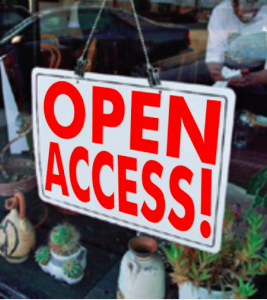
Open Access for all
Shared information will make the world a better, brighter place
Copyright owners and authors are usually more interested in preserving their rights than sharing their knowledge for free, but a global event happening this week called “Open Access Week” aims to change these attitudes.
The main purpose of the event is to promote free access to online information. More than 40 per cent of people in the world use the Internet, and the web has helped people gain more knowledge in various fields as it has grown in the past two decades. Simply, it has become the primary source through which people find and share information.
Free online sharing is very useful to students and young people. A student who is doing research will benefit a great deal if they are given free access to see a research paper made by peers.
Unfortunately, there are only a few useful academic sites that permit users to view their content for free – many sites still ask users to subscribe and pay to access information.
Wikipedia is one of the few sites where in people can learn about almost anything without paying anything and that is why Wikipedia is rightly called the information source. Today, more than 20,000,000 people use Wikipedia. It may not be a perfect academic source, but it is still an amazing example of the information-spreading power of open access.
There are other sites like Twitter that provide instant updates about the very latest information happening around the globe. People who tweet about new inventions and ideas, and by using these social media sites, people get to know the latest information. People don’t need to wait for the newspaper to inform them of the latest news; if they get free access to visit the proper websites, they can get information instantly.
The main advantage of free access is it helps a person in broadening the horizon of his mind. A person will be exposed to new ideas he wouldn’t have encountered just by reading books. People from all over the world get to know about new innovations and ideas. If we voluntarily remove the barriers to information exchange and learning where possible, we will speed up the creation of newer ideas and even better inventions.
It’s not only about scientific ideas or academic knowledge, either – people also need to share news and reviews of the products available in the market. For example, there can be a blog of a designer wherein he can tell you about the new fashion trends. Instead of asking a shopkeeper, you can know the opinion of a fashion expert.
This applies to every field. Blogs are one of the best ways to give information to others. Experts should consider providing information to the public instead of keeping it to themselves. What’s the use of a blog if others can’t read or give their opinions? The expert’s advice could help people everywhere make better choices, and open debate with others can help the expert refine their ideas. The Internet has become the best way to express a strong opinion just by sitting at home. If you had something you felt strongly about, what better way to let people know than via the Internet?
Technology has come a long way, and the best thing to do with it is to use it efficiently. We need to spread knowledge and information whenever practical, not keep it within ourselves or within small, gated communities. The Internet is one of the best ways to spread such information. It not only increases the personal knowledge of the individuals who access it, but, cumulatively, it also creates social awareness and a more informed world.







